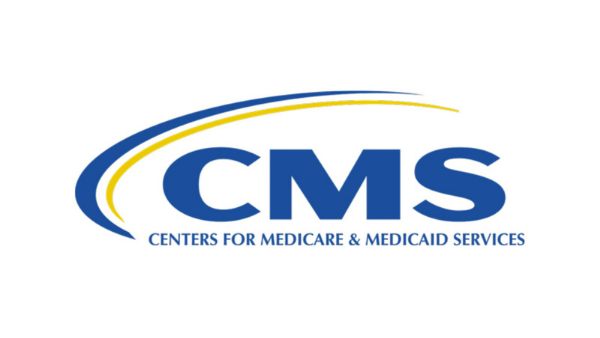Posts Tagged ‘Long-Term Care’
How to Save Millions on a CMS Immediate Jeopardy Enforcement
Tuesday, March 9th, 2021
Senior living providers face unrelenting challenges—a burdensome regulatory environment, financial sustainability, COVID-19 preparedness, quality and safety performance, complex legal issues, and a workforce that is more stressed and vulnerable than ever before. Read on to learn how a deep dive into the medical records may have saved this LTC facility millions in CMS fines.
CMS Compliance
The Centers for Medicare and Medicaid Services (CMS) has indicated that now more than ever, they are taking necessary steps to ensure long-term care facilities are adequately meeting the needs of their residents through ongoing, focused site surveys. The stated purpose of a CMS survey of a skilled nursing facility (SNF) is to ensure that the SNF is in substantial compliance with Medicare’s Requirements of Participation. This is to presumably increase the likelihood of improved resident outcomes and quality of life. Substantial compliance is assessed when there are no conditions present that could cause more than minimal harm or actual harm to any resident.
CMS Immediate Jeopardy
When non-compliance exists, CMS has the authority to impose one or several enforcement remedies. These may include a Civil Money Penalty (CMP); denial of payment for new admissions, a targeted plan of correction, and/or termination from Medicare and Medicaid programs. According to CMS Memo #17-37-NH on CMPs, the remedies are “intended to promote a swift return to substantial compliance for a sustained period of time, preventing future non-compliance.”
When CMS deems a CMP is appropriate, they make a determination between a Per Day and Per Instance assessment. Per Day CMP is used to address non-compliance when a resident suffers actual serious harm at the immediate jeopardy (IJ) level, a resident was abused, or the facility had persistent deficient practices violating federal regulations. CMP assessments are not only impacted by the type of non-compliance. Factors such as the date the facility was determined to be out of compliance also affect assessments. Immediate jeopardy assessments often involve CMPs above 1 million dollars. When assessed, they significantly impact the already limited resources a long-term care facility needs to deliver quality resident care.
It goes without saying that long-term care facilities should be held accountable for providing substandard care to their residents. It is arguable, though, that the CMS survey process itself needs improvement. In our experience, however, many times, issues arise when the medical record documentation falls short and fails to substantiate the comprehensive and compassionate care rendered by the nursing home staff. In these instances, facilities are not only at risk for substantial sanctions from CMS but significant liability claims as well.
Med Law Case Study
We present a case in which our client, a mid-sized regional skilled nursing facility, faced an Immediate Jeopardy assessment by CMS related to wound care provided to one of their long-term residents over a ten-month period. Defense counsel for the SNF reached out to Med Law when the survey team was onsite, requesting an emergency medical record review to help defend the assessment and mitigate damages. Working alongside the Director of Informatics and VP of Clinical Operations for the facility, the Med Law team had remote access to the facility’s electronic medical record (EMR) within 2 hours. Over the next few days, Med Law nurse consultants diligently reviewed clinical documentation surrounding the resident’s 13 wounds, working with nursing administration to fill in the noteworthy documentation gaps.
Within days of initiating the review, Med Law consultants determined:
- The facility properly and thoroughly assessed and reassessed the resident’s risk of skin breakdown with rare exceptions.
- A comprehensive, person-centered care plan to address the resident’s risk for skin breakdown and actual pressure injuries was developed. Care plan updates and revisions were ongoing.
- Supportive interventions to promote healing of the resident’s existing wounds and prevent new wounds were noted throughout the record.
- Wound consultant notes, found outside the EMR, provided supportive evidence the resident’s physicians were closely monitoring his wounds and directing wound care.
Review Results
As a result of the collaborative efforts between the Med Law consultants and facility nursing administration, the teams identified significant documentation that supported proper care and treatment of the resident’s wounds for most of the original period of non-compliance. Unfortunately, issues remained regarding a lack of documentation to substantiate provider notification of symptoms consistent with wound infection for six days. The resident’s physician became aware of the wound changes during a follow-up wound evaluation. These findings were submitted to the CMS survey team for consideration in the Immediate Jeopardy assessment. The final calculation of CMPs was pending at the time of this post; however, given the duration of the initial period of non-compliance, the review findings likely saved the facility hundreds, if not millions of dollars in penalties.
Strong record-keeping equals a strong defense in regulatory and medical-legal matters. Accurate and clear documentation in the medical record supports the staff’s attempts to provide comprehensive, person-centered care to patients and residents. Given the intense regulatory oversight and volatile nature of litigation in the senior-care environment, it’s more important than ever that staff understand the importance of memorializing resident assessments and the overall care rendered in the medical records.
How Med Law Advisory Partners Can Help
Med Law Advisory Partners can help LTC organizations implement action plans to help mitigate risk for and effectively respond to regulatory assessments and liability claims. Our LTC Defense Preparedness Program identifies weaknesses in record-keeping systems and outlines ways to improve processes and defend standard of care claims.
If you would like more information on how our team can help your organization, we’d love to hear from you. Contact us to schedule a conversation.
 Founded by Alicia Davis, RN, LNCC, Med Law Advisory Partners (and former ALN Consulting) provides resources and expertise in the areas of safe opioid prescribing, medical malpractice, and post-acute care litigation, including COVID-19 claims. Alicia and her team have worked with government entities, healthcare systems, insurers, and senior-living operators for nearly 20 years, helping mitigate risk and manage medical-legal and healthcare fraud claims.
Founded by Alicia Davis, RN, LNCC, Med Law Advisory Partners (and former ALN Consulting) provides resources and expertise in the areas of safe opioid prescribing, medical malpractice, and post-acute care litigation, including COVID-19 claims. Alicia and her team have worked with government entities, healthcare systems, insurers, and senior-living operators for nearly 20 years, helping mitigate risk and manage medical-legal and healthcare fraud claims.
Originally published March 8, 2021.